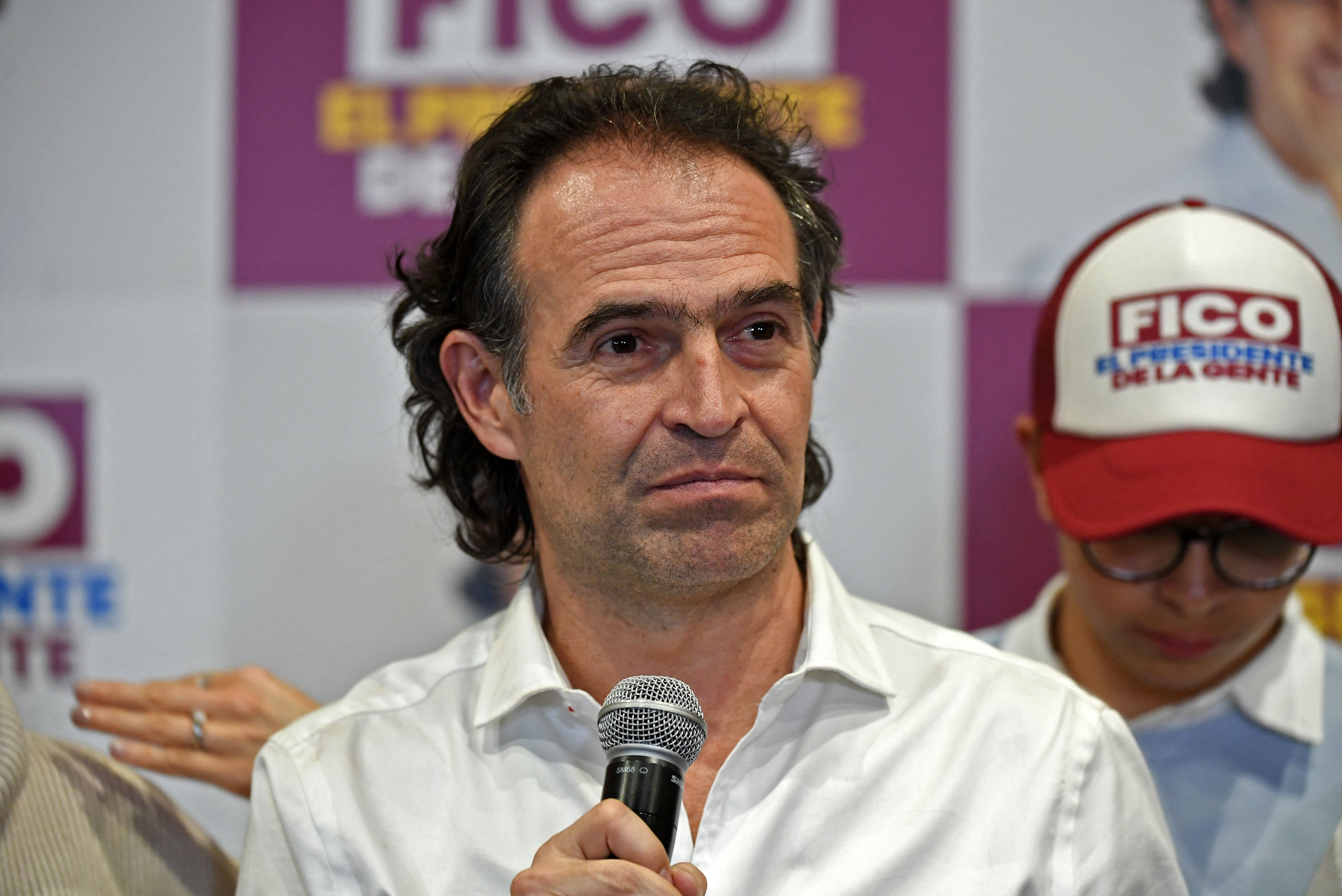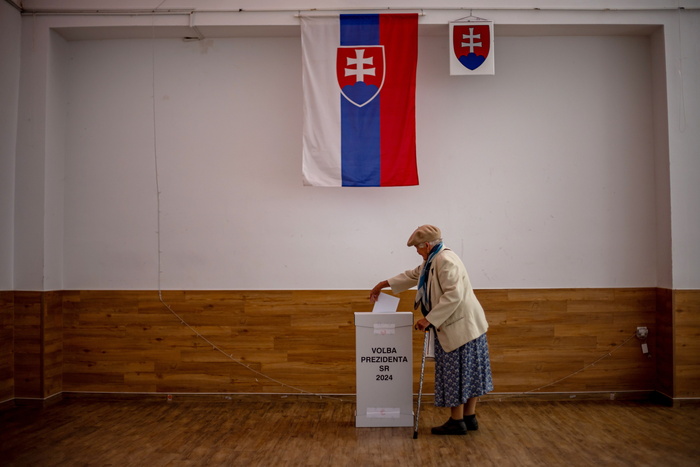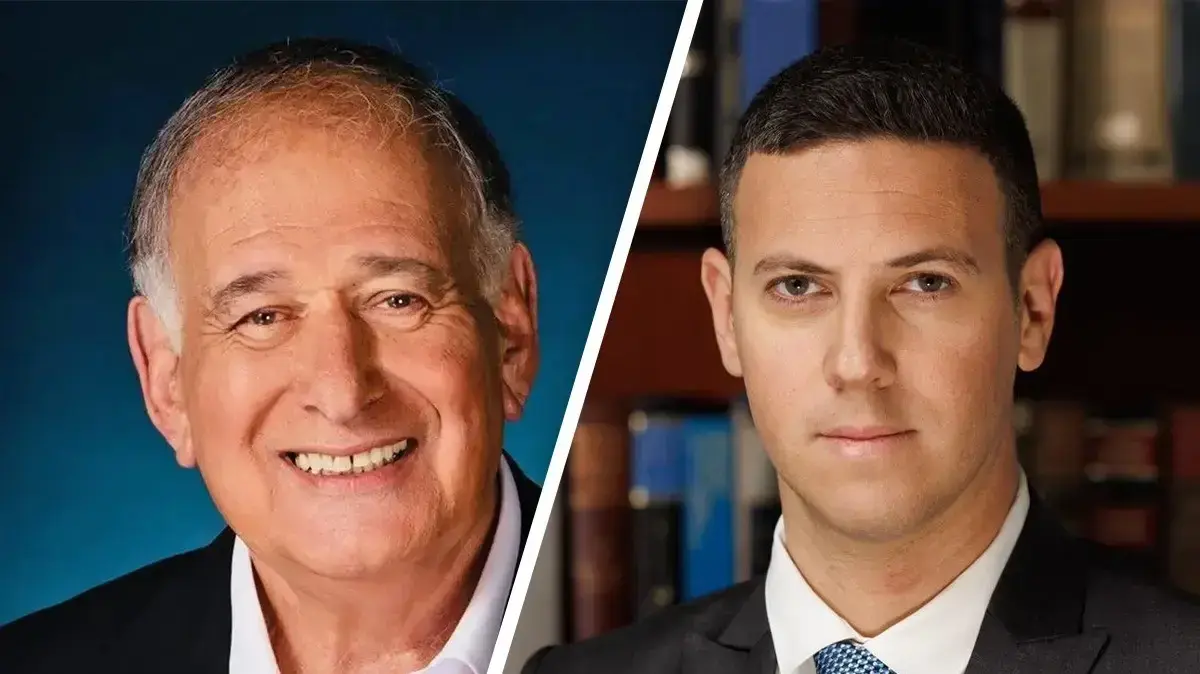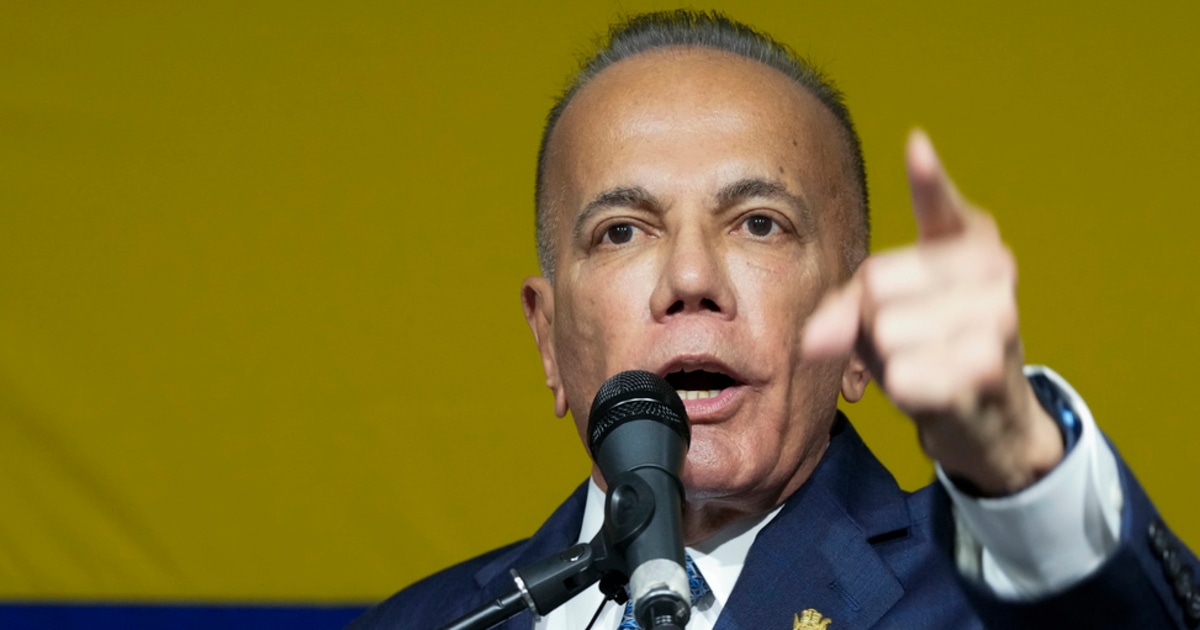Colombia: Petro and Hernández will meet in the second round 4:47
(CNN Spanish) --
The first presidential round in Colombia left a clear protagonist, a left leading the country, a series of bitter and tasteless events for the traditional parties, and an unpredictable victory until a few months ago for an anti-system candidate who remained in a coveted second place to fight for victory on June 19.
This is the political panorama of Colombia after the first presidential round on May 29.
Winners
Gustavo Petro and the left
Petro: "Duque's political project has been defeated in Colombia" 1:34
Gustavo Petro, the candidate of the Historical Pact, a coalition of leftist parties, was the absolute winner of the day, obtaining 8.5 million votes.
This is a historic vote for the left in Colombia, a country traditionally governed by the right.
In the first round, Petro prevailed with 40% of the votes, far behind his main contender, Rodolfo Hernández, of the League of Governors Anti-Corruption movement.
In these elections, Petro amassed an electoral wealth never before reached by the left and grew exponentially in votes compared to past elections.
In his first candidacy in 2010, Petro, candidate for the Alternative Democratic Pole, obtained 1.3 million votes (9.1%).
For 2018, his second candidacy, Petro obtained 4.8 million votes in the first round (25% of the valid votes).
And now, in his third campaign, he was the winner of the election with 8.5 million votes (40% of the vote).
advertising
The candidate celebrated the news.
"More than 40%. If it were compared with the figure of four years ago, let's not even talk about it. Double. If it was compared with the figures of March 13, our recent intervention, in my particular case, is almost double me," Petro said. this Sunday to a crowd that accompanied him in the Center of Bogotá.
"It is an undoubted growth in the three regions that we anticipated would be victorious and that, even due to their percentages, could have allowed us to win in the first presidential round," Petro added.
However, although this vote for the Historical Pact is immense, it was not enough for Petro to win in the first round, an objective that his campaign had set for himself, because in such a polarized country, the bets for the second round and the alliances here From now on, they will play an important role in electing the president of Colombia for the period 2022-2026.
According to the polls before the elections, which put Petro with an intention to vote of around 40%, he could have reached his electoral ceiling.
Will it collect more votes in the second round?
We will know on June 19.
ANALYSIS |
The 5 conclusions of the first round in Colombia
Rodolfo Hernández and the populist discourse
Rodolfo Hernández: "Today the country lost to politicking and corruption" 3:10
Rodolfo Hernández and the League of Anticorruption Leaders are undoubtedly the protagonists of the day.
Hernández, a regional politician who rose to fame with an anti-corruption, social media-driven rhetoric (he calls himself the 'King of TikTok'), garnered a surprising 5.9 million votes over far better-known candidates. the.
Hernández, an anti-system businessman, is controversial wherever you look and his proposals and rhetoric point less to the programmatic and more to the punishment of traditional politicians.
This Santanderean politician was the big surprise of the night, because in all the polls he was third behind the right-wing candidate Federico Gutiérrez.
However, in recent weeks, the polls have shown that he has skyrocketed in the intention to vote and, despite the disbelief of some sectors, in the end it happened: he is now vying for the presidency with Petro.
In his speech, Hernández said that this Sunday's vote is a reflection of the change that Colombians are asking for.
"Today the country that doesn't want to go on for a single day won, with the same men and women that have led us to the painful situation we are in today," Hernández said, alone, apparently from the kitchen of his house, after spending to second round.
"I am aware of the difficulties that will come when I assume the Presidency of the Republic. I am not naive about the resistance that there will be against a government determined to put an end to politicking and corruption, especially by some of those who have felt owners of this country," he added.
Hernández appeals to voters who reject Petro's revolutionary past and Gutiérrez's establishment support.
His confrontational manner and his unique way of doing politics through social networks has earned him comparisons with former President Donald Trump and even with that of Brazil, Jair Bolsonaro.
Hernández has surprised because he rarely participated in televised debates organized by the country's major television networks, rarely gave interviews to international media and once appeared on CNN in his pajamas saying that he is a people person.
political participation
These elections had a high turnout compared to the past ones.
21.4 million Colombians went to the polls this Sunday, leaving aside the typical abstentionism in previous votes.
39 million Colombians were called to vote and this time 54.91% of the voters participated.
In 2018, 19.6 million voters participated (out of an electoral register of 36 million), reaching 54.2% of electoral participation.
Summary and results of the 2022 presidential elections in Colombia: this was the voting of the first round
The losers
Fico Gutierrez
ANALYSIS |
Why 'Fico' Gutiérrez did not go to the second round 1:59
The right-wing candidate, Federico 'Fico' Gutiérrez, was the third in votes this Sunday.
He obtained 23.9% of the votes behind Rodolfo Hernández.
'Fico', who obtained 5 million votes, was not reached by the series of supports he had in his candidacy, including traditional parties such as the Conservative Party, the leadership of the Liberal Party (headed by former president César Gaviria), the continuity of President Iván Duque and even Uribismo, although Fico has distanced himself from the figure of former President Álvaro Uribe and categorically denied being the candidate of continuity.
And his link with Uribismo was the reason why Fico did not make it to the second round, according to political analyst Vicente Torrijos.
"The moment the word spreads that Fico Gutiérrez has become the uribismo candidate, it starts to deteriorate," Torrijos told CNN.
"The uribismo that dominated the political landscape, at this time, has been largely the cause of the deterioration of 'Fico' Gutiérrez's campaign, to the extent that nobody wanted to have either President Duque or former President Uribe as the referents of his campaign," added the political analyst.
The Colombian analyst León Valencia pointed out that the votes that Fico did not have left with two options for change: "Until ten days ago 'Fico' was the candidate to go to the second round, but it stalled. It lasted two months stalled at 20- 23 points and today what has been shown is that there is an interest in change in Colombia, it is that there is a fatigue, there is enormous anger in the population and they voted for two options for change: one at the head of Petro and another at the head of Rodolfo Hernandez".
After his defeat, Gutiérrez announced his support for Rodolfo Hernández.
This was Federico 'Fico' Gutiérrez's speech after losing in the first round of the Colombian elections: "Petro would be a danger to democracy"
Sergio Fajardo and the Center
Who was once the option of the center and the face of the third party, and also represented the option for many to get out of polarization, plummeted in these elections.
Sergio Fajardo, of the Esperanza Center Party, obtained a sad 4.2% of the votes in these elections, well below the votes he obtained four years ago when he reached 4.6 million votes, which left him third behind Gustavo Petro. in the first presidential round of 2018.
Fajardo, who this Sunday, May 29, obtained 888,000 votes, maintained the trend of votes from the internal consultations of March 13 of this year, when he was elected candidate of the Centro Esperanza coalition (he obtained 723,000 votes).
The Centro Esperanza campaign was marked by chaos: weeks of uncertainty and disputes to form the coalition, attacks among its members, Ingrid Betancourt's resignation from the coalition, low votes in the consultations, and Fajardo's collapse in the elections. surveys.
The electorate punished Fajardo for not having actively participated in the second round —which was contested by Duque and Petro— and instead went to see whales.
"It has made a bit of a dent in his image that he couldn't work with others after that electoral defeat; it has also made a dent in Sergio Fajardo's ability to converge that center around him, in the consideration that some have of the depth of the center's proposals to be able to connect with citizens," Inés Muñoz, professor and researcher at the Javeriana University's Faculty of Political Science and International Relations, previously told CNN.
(In June 2021, Fajardo said he felt "exhausted" after such a marathon campaign and needed a break. While he apologized for the whale issue, he did not apologize for voting blank.)
And another issue that could have made a dent in his political image was a disciplinary process for the detriment of 4.3 billion pesos (just over US$ 1,100 million), of which in the end he was not found guilty.
"That was a political damage that hit him much more than the issue of the whales," Esteban Salazar, coordinator of Democracy and Governance of the Peace and Reconciliation Foundation, PARES, told CNN.
"It was a blow that really, in his banner of the fight against corruption, independence, in his fight not to have any scandal, weighed heavily on him," says Salazar.
"The majority of the Hope Center coalition vote is an opinion vote that is really gaseous, quite ethereal."
When will be the second round of the presidential elections in Colombia?
What you should know
Uribismo and Iván Duque
Finally, the big losers in this first round were President Iván Duque and former president Álvaro Uribe, the latter especially being decisive when it came to not supporting any candidate, according to analyst Vicente Torrijos.
Uribismo has ceased to be the electoral force that it had been in the last 20 years, because, as analyst Rafael Nieto Loaiza previously told CNN en Español, "the election of Duque as president and the four years of his government, which they have been the target of criticism from their own party, they have this political force in decline".
And with a high degree of unfavorability, former President Álvaro Uribe himself has recognized that his support for any candidate in the 2022 presidential elections could subtract instead of add.
"Any candidate I approach, right there they say 'Uribista' and put a stigma on him," Uribe said in mid-April.
Finally, the elections were also a referendum on the government of Iván Duque, who optimistically told the BBC last week that if he had stood for election he would have been re-elected.
And what this first presidential round shows is that after a government of four years with much adversity and great protests, Colombians want Duque and his very unpopular government out of Colombian politics.
However, after the adhesion of Gutiérrez and several right-wing politicians to Hernández's campaign, for many Uribismo is not dead, it has only been transformed.
-- With information from Fernando Ramos, Sebastián Jiménez and Melissa Velásquez from CNN en Español.
Elections ColombiaGustavo PetroRodolfo Hernández














